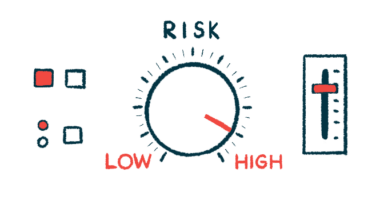Maintaining a Fluid Balance While Taking Diuretics

When I received my pulmonary hypertension (PH) diagnosis I was in congestive heart failure. Since then, I have been taking diuretics to assist my body in getting rid of excess fluid and to treat my heart failure. Unfortunately, over time, the diuretics have damaged my kidneys.
I was diagnosed with chronic kidney disease almost five years ago. My medical team continuously adjusts my diuretics to ensure my best overall health.
My kidney issues are a concern while taking diuretics. A small fluid imbalance can throw my electrolytes out of whack and start a downward spiral with my coexisting medical conditions. Recently, due to an increase in fluid retention, my PH team and I decided to try a different approach. We hope that slowly adjusting my multiple diuretics will reduce electrolyte imbalances.
As problems like these arise, I must trust my medical team. We work together for the good of my health. I have labs drawn every two weeks and keep my PH nurse updated via email or phone. When we are adjusting medications such as diuretics, it is crucial to keep track of how my body is reacting.
Maintaining a fluid balance can be tricky. I continually monitor my intake, which includes ice, soups, and other liquids. I use my food tracker to record my consumption, and I’m careful of the foods that I eat. Diuretics can cause me to experience poor appetite and nausea — a combination that can negatively affect my body if my nutrient intake is inadequate.
I’ve established a routine to monitor my fluid balance. I weigh myself first thing in the morning using the same scale. I add potassium-rich foods like avocados and sweet potatoes to my diet, because some diuretics deplete this mineral. I also take daily potassium supplements — and adjust them according to my diuretics dosages.
I notice a worsening of symptoms when I am retaining extra fluid. One of these is an increase in breathlessness. I also experience more fatigue and dizziness. My abdomen becomes distended, while others with PH see more swelling in their lower extremities and hands. When my belly feels full, it can be difficult to eat.
Trying to keep my fluids and electrolytes balanced can be challenging. I picture a balancing scale in my mind and visualize the volume of fluid I am taking in and the amount I am eliminating. While not every PH patient has fluid restrictions like me, many take diuretics at some point. Learning what works best for your body and working with your doctors is the key to maintaining a balance.
Do you struggle with maintaining fluid balance? Please share your experience or suggestions in the comments below.
***
Note: Pulmonary Hypertension News is strictly a news and information website about the disease. It does not provide medical advice, diagnosis, or treatment. This content is not intended to be a substitute for professional medical advice, diagnosis, or treatment. Always seek the advice of your physician or other qualified health provider with any questions you may have regarding a medical condition. Never disregard professional medical advice or delay in seeking it because of something you have read on this website. The opinions expressed in this column are not those of Pulmonary Hypertension News or its parent company, BioNews Services, and are intended to spark discussion about issues pertaining to pulmonary hypertension.








Comments
Mary
I feel as if it was me writing this. I too have pulmonary htn and diastolic heart failure. It’s a daily struggle to try to balance fluid intake, sodium restriction, foods that cause gout(which I developed from overdiuresis from diuretics), carb restrictions from my type 1 diabetes all while being diuretic resistant. I have a cardiomems implant which I do daily and it doesn’t always correlate with the weight fluctuations. When my fluid and electrolytes are whacked, I’m lucky to just take care of my basic daily needs. I too tend to retain fluid in my abdomen. I’ve tried to increase the protein in my system to help this but with all of the dietary restrictions it too is challenging. It gets overwhelming then I get anxious and depressed because I’m so used to being in control of my health and ph is almost impossible to control. When it gets to be too much I try to talk myself off the edge and take one minute at a time. We can only control so much in our bodies. Just try to do the best that you can.